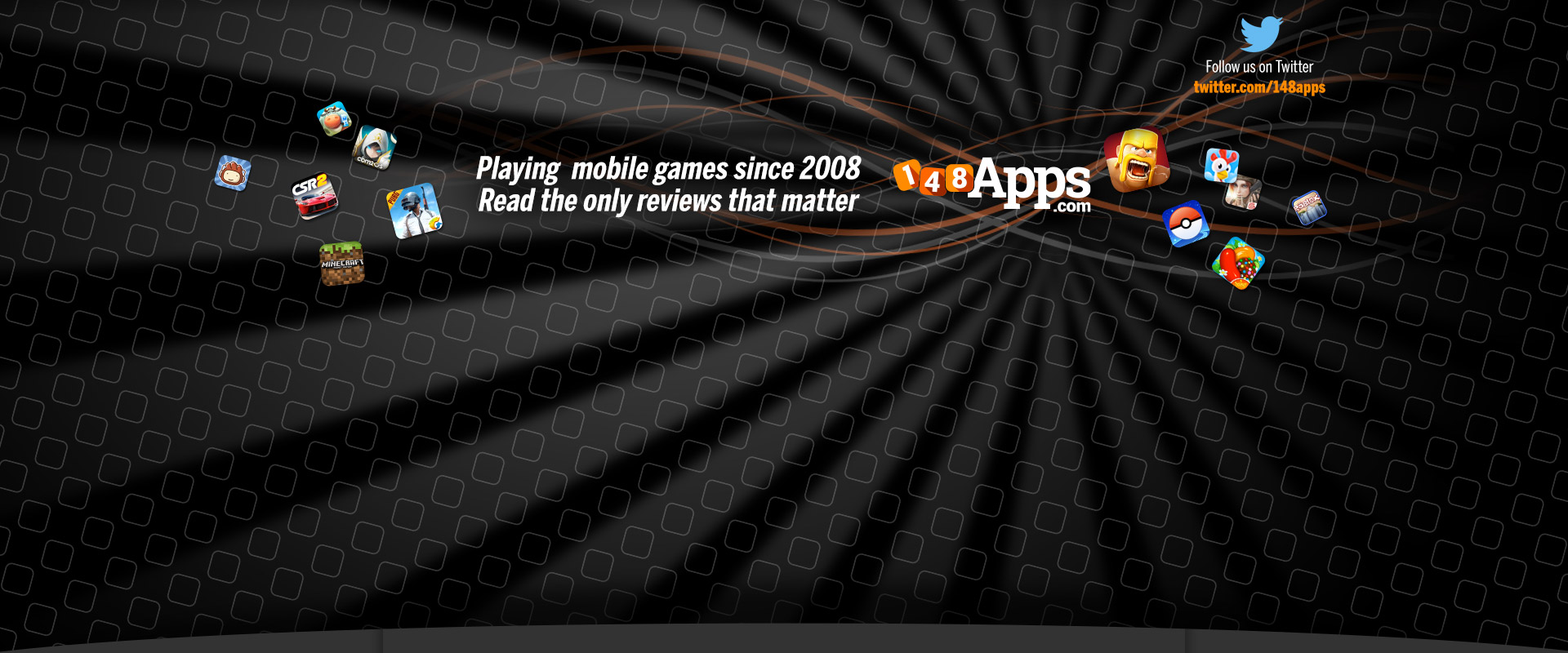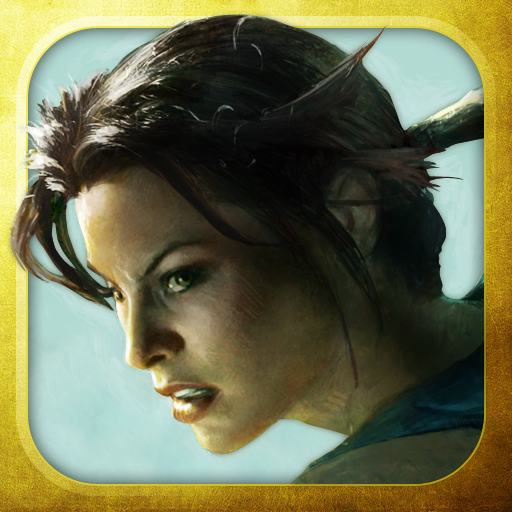A Sit-Down With Phil Waymouth of Ideaworks
Earlier this month, I had a sit down with the Vice President of Business Development at Ideaworks Game Studio, Phil Waymouth. Ideaworks has developed some of the App Store's most popular applications, for some of the most recognized names (EA and Activision to name two) in the industry. I asked Phil about Ideaworks and its latest port, Lara Croft and the Guardian of Light.
Hi Phil, thanks for taking the time to answer some questions for us! You work for Ideaworks Game Studio, the highly successful video game development company that's created some of the world's most recognized titles for mobile devices, including Need for Speed: Most Wanted and Call of Duty: World at War: Zombies. What do you specialize as within the company?
I head up business development at Ideaworks Game Studio. So, day-to-day it’s my job to work directly with our customers & publishing partners, identifying new game opportunities and planning our portfolio of work. This encompasses everything from sourcing new projects, negotiating contracts & release schedules, and then working closely with the rest of the Studio team both during development and after release to support our titles.
So, for the games you mention above it would be my responsibility to work with the EA & Activision/Treyarch teams respectively to deliver mobile versions of their premium titles.
The cross platform development area of Ideaworks focuses on porting games from different sources into an SDK called Airplay (not to be confused with Apple's Airplay). Can you elaborate on what Airplay is and how it works?
Certainly. Airplay SDK is a flexible, multi-platform development solution created by our sister company Ideaworks Labs. Airplay SDK allows us to create high performance applications for multiple mobile platforms at the same time, and we’ve used it for all our games to-date, including Lara Croft and the Guardian of Light, Call of Duty, Backbreaker Football, Resident Evil, Metal Gear Solid, and many others.
Basically, Airplay SDK allows a developer to compile a single codebase and deploy easily to iOS, Android, bada, Symbian, Windows Mobile, and webOS devices. It’s worked fantastically well for us as a development team and is now being used by thousands of developers & publishers around the world to develop their own titles.
"Airplay SDK allows a developer to compile a single codebase and deploy easily to iOS, Android, bada, Symbian, Windows Mobile, and webOS devices."
Your latest port, Lara Croft and the Guardian of Light, continues work that you began back in 2003 with an initial port of Tomb Raider onto the N-Gage and Windows Mobile. How challenging was it to port GoL onto the iPad, which operates under a much less graphically powerful framework in comparison to the Playstation 3, Xbox 360 or PC (where GoL was initially launched)? The game was only released in August for these platforms - and then last week for iOS - is three to four months a good turnaround time for a game of this size?
To be strict, our version isn’t a port of the console game: we re-wrote the codebase specifically for mobile devices and re-created most of the art assets too, so we were very fortunate to work closely with both the Square Enix and Crystal Dynamics teams who offered support and reference materials for the game. We actually used the beta version of the XBLA title as our design document, playing & recording every level, character, weapon and puzzle. In the end, the game's scale wasn't identical but the level designs themselves were taken directly from the console game.
This is often the way we work. In most cases we believe it delivers the finest quality result for a premium brand like Lara Croft. Remember, for something like iOS you’re not actually writing a game for a console (since you get interruptions such as phone calls & low-battery warnings) but you’re also not writing for a phone (since the iPod Touch isn’t one), and we’ve found that using previous experience and working closely with your partners help create games that get the best out of these devices.
"For something like iOS you're not actually writing a game for a console but you're also not writing for a phone (since the iPod Touch isn't one."
The game did take us a little longer than 3-4 months to make (it’s a large game with lots of complexity) but we’re very proud of the outcome. One issue a game like GoL does highlight is the pace at which mobile platforms moves – a lot of our team come from console backgrounds, and the rate at which new devices and new OS features comes out is both fantastic but a real challenge – especially when you’re deciding what features a flagship game should target in advance!
When porting GoL, what goals did you have in mind? Did you want to maintain it as authentic as possible to the original, or take your own angle to suit the iPad directly?
Our goals were to keep the mobile version as authentic as possible, especially in the areas of cooperative multiplayer and high production-quality. Of course, there are always considerations you need to make for a new form factor (for example, around controls, cameras, etc.), but we wanted to keep the gameplay as similar as possible and I think we’ve succeeded in doing that.
Our game shares the showcase features that Square Enix advertise for the console & PC versions (high quality gaming, co-operative multiplayer, the ability to drop-in to running games, voicechat between players, leaderboards & achievements, etc.)
What do you think the future holds for cross-platform games? Could we ever see games like Half-Life 2 or Portal being played on a future generation iPad? If you look at the technological progress between the first iPhone and the iPhone 4, the gap is significant. We can do things now that we just didn't have the technology to do then, at least not within the iPhone's size. Have you been surprised at the power of iOS, now that we're playing titles like GoL?
It’s certainly feasible that experiences such as Half-Life 2 or Portal could be delivered on mobile devices, and FPS’s have already been extremely successful – our work with Activision on Call of Duty is an example. You’re absolutely right about the technology too: the rate of progress is startling, and the latest generation of mobile chips with 1GHz, dual-core chips & fast graphics are unbelievably powerful considering their size.
You need to be pragmatic about hardware differences though: despite being 5 years old the Xbox 360 probably has 5 times the CPU power of a high-end smartphone, and perhaps the same on the graphics side. So, will the graphics be quite as rich? No. Will the physics be as explosive? Perhaps not. Does the touchscreen mean controls will be a little different? Yes. Will it feel like the same game, though? Definitely: smartphones are powerful enough to support modern game design.
The challenge remains over finding gameplay that’s best suited to a mobile device: you can’t assume that just because we can take a successful console game to mobile that it’ll be a hit. As an example, we see a lot of players playing our games for either ~6 minutes (say, if they’re commuting) or for ~60 minutes (say, if they’re playing at home). Designing a game that allows that menu of experiences is a real challenge, and we’re fortunate to have a history of mobile game development experience we can draw on. The trick is to design a game that feels like the original while being sympathetic to the way the gamer uses the device.
Finally, regardless of technology I think customers appreciate high production quality, and that’s a big focus for our development. A benefit of our long history is that our technology base allows us to concentrate on making the game, rather than fiddle with every last setting of the hardware.
"We see a lot of players playing our games for either ~6 minutes (say, if they’re commuting) or for ~60 minutes (say, if they’re playing at home)."
And finally, do you see iOS as the new leader of portable gaming? In Steve Jobs' iOS4 presentation, he announced that the iPod Touch alone outsold Nintendo and Sony sales combined - creators of the DS and PSP respectively. Will iOS play a key component in the porting side of Ideaworks?
Well, it’s pretty apparent that iOS has done amazingly well in pushing forward high quality mobile gaming. I can’t comment on sales figures for the devices – we only get the same Internet reports as you guys! – but the market they’ve created for top-tier gaming is remarkable. Apple have done a fantastic job by combining an intuitive UI, high-quality devices, and a simple-as-pie billing & delivery mechanism (both for purchases and updates).
So, in that regard, iOS will continue to play a key role in our work. Having said that, there are a huge number of Android devices being shipped, and platforms such as Samsung’s bada & HP/Palm’s webOS all offer high-quality devices and rich marketplaces for us to release games. For those markets, we’ll certainly continue to use Airplay SDK to target as many different platforms as possible.
One last mention should go to Windows Phone 7 too which, although a little later to the party, appears to have a strong push behind it from Microsoft, and has attractive Xbox Live integration which I think people will enjoy.
Thanks Phil for answering our questions! All of us here at 148Apps wish you well for 2011!
Thank you!
[gallery type=thumbnail]






